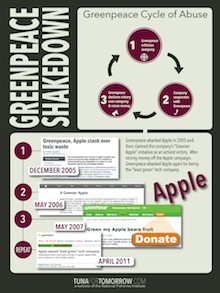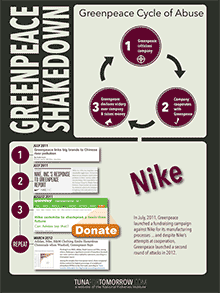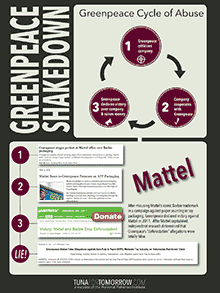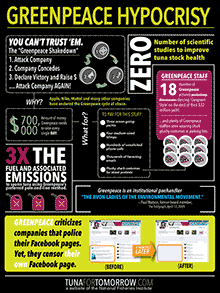On their donations page Greenpeace claims they are ŌĆ£an independent organization that does not take money from corporations or government. We rely on individual donations from people just like you.ŌĆØ
Well, people just like you, if you happen to be a currency speculator. According to a report by the Guardian, Greenpeace just lost ┬Ż3 million (or just about $5.1 million) on the foreign exchange market by making a bad bet on the euro.
While Greenpeace brassŌĆöwith their mega-yachts, hot tubs, and helicoptersŌĆöcertainly live like financial fat cats, currency speculation seems like an odd line of business for a non-profit allegedly focused on making the world a better place, considering some of the disastrous effects speculation has produced for large swaths of the world in the past. Then again, Greenpeace has a long and storied history of questionable and hypocritical practices.
TheyŌĆÖve recently come under fire when it was revealed that despite their long campaign against the high carbon-footprint of air travel, they paid for a senior GPUK executive senior executive to fly 250 miles twice a month for his┬Ā┬ĀŌĆ£commuteŌĆØ between Luxembourg and Amsterdam.
And, of course, readers of this blog will know that Greenpeace frequently stoop to advancing questionable and downright harmful ŌĆ£researchŌĆØ to promote their ulterior agenda against eating fish.
Sadly, GreenpeaceŌĆÖs gaffes should come as no surprise. They are an organization that is perversely proud of promoting faulty science, sending out dozens of fundraising emails every week bragging about ŌĆ£successesŌĆØ like sending costumed teenagers to harass customers at local supermarkets.
If these juvenile antics and commitment to shoddy science arenŌĆÖt enough to convince fence-sitters to stop giving Greenpeace attentionŌĆöand moneyŌĆöperhaps the tone-deaf, jet-setting hypocrisy and riverboat gamblerŌĆÖs approach to budgeting will.








